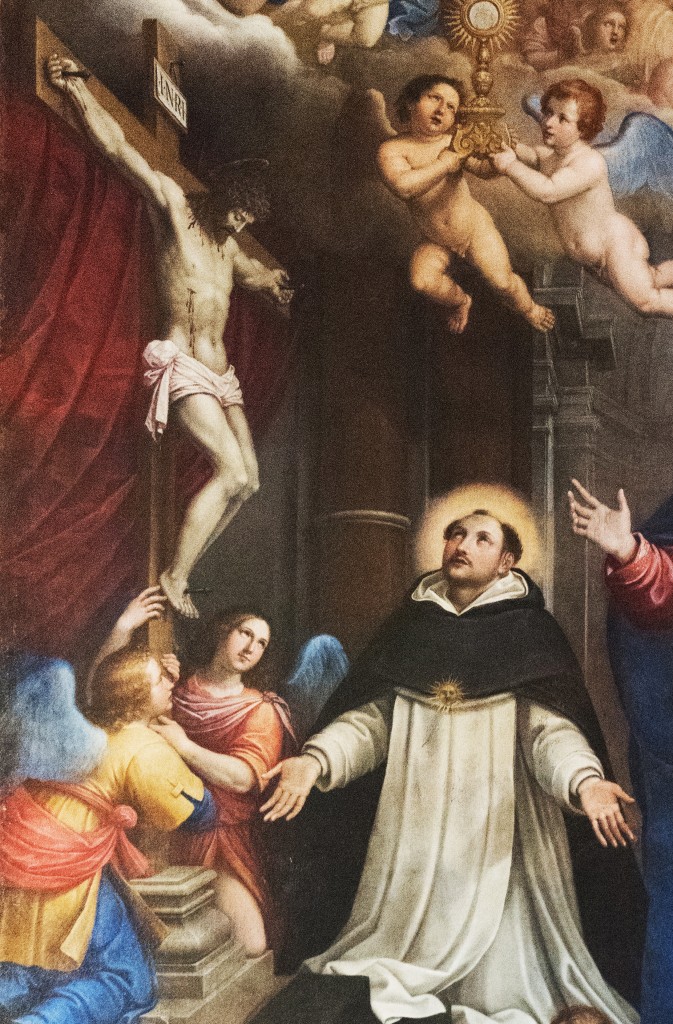CHAPTER V
TRUE AND FALSE SCIENCE
I. By the light it sheds on the principles underlying the
phenomena which surround us, science puts us in a position
to apprehend and interpret these latter truly. If men were
guided by a right motive in their search after knowledge, all
separate sciences would be revealed as constituent parts of
one supremely harmonious whole. But many desire to
know, not that they may know truth, but that they may
minister to the concupiscence of the flesh, and the concupiscence
of the eyes and the pride of life.
" It is only too certain," said Leibnitz, " that many who
are unquestionably learned -men, are yet devoid of the light
of truth." Hence we are confronted, not only by the science
which really knows, but by a so-called science, which has far
less claim on our respect, or may be altogether misleading.
With what different eyes men behold thee, O Science ! By
the one thou art hailed as an immortal goddess, by another
as a means to daily bread.
Rational man seeks light on past and future, and reflects
on the mysteries of his own being and the end of life ; this
he does for his own sake, and not to prove to himself that
knowledge is attainable. He is justified in thinking little of
any knowledge which fails to elucidate the meaning of life,
and to contribute, in however small a degree, towards the
amelioration of the conditions of human existence.
Knowledge is a good, but not the supreme good. Men
speak of the right of science to assert her independence, and
they are justified in demanding that no illegitimate influences
be suffered to impair her freedom. Yet it is idle to claim
for her an absolute independence. There is a certain well-defined
limit which she cannot afford to transgress; once it
is ignored, science ceases to be science, and becomes a
deception and a lie. This limit is truth ; science which is not
primarily concerned with truth is a source of confusion and
calamity. There is that above her which she must hold
inviolable. He who seeks knowledge must beware of
dethroning truth.
The dogmas of the Catholic Church are as unchanging as
the axioms of geometry ; neither the one nor the other can
be held to constitute an obstacle in the path of civilisation.
" Science," says a writer of our own day, " is a slave,
bought and sold in the market place ; at whatever cost to
her dignity, she must bow to every caprice of her all-powerful
master. Truth, on the other hand, is a queen, with whom
none may deal lightly. She abates nothing of her claims,
nor suffers others to abate them ; she accepts no homage
save that of entire submission."
Men point to the conclusions at which modern thought
has arrived. What are they ? Do they carry us one
whit further than the conclusions of a hundred years ago
or more ? " Since there are beings," says one, " there is
necessarily a Being of beings, and in this Being of beings
we are all immersed." " Precisely the contrary is true,"
rejoins another. " I myself alone am ; all else is a web of
illusion spun by the Ego." A third : " I concede the
existence of world and soul ; each is ignorant of the other,
but both alike tend to that which is in its essence one." A
fourth : " Being and soul are unknown things to me ; I can
only say that they seem to be, yet they are more than mere
seeming." A fifth: "I am I, i.e., I postulate myself; if I
postulate myself, I thereby postulate a non-self." A sixth :
" Presentation there certainly is ; this implies a thing
presented, and a thing which presents, and together these
make three."
2. It need occasion no surprise that such doctrines should
find many adherents, despite their unintelligibility. The
most preposterous absurdities have a way of sounding learned
if only they are sufficiently obscurely expressed. Men are
ready to do homage to the unintelligible, provided that their
passions are accorded free play. Ask them why they admire
this or that, and they will have no answer to give.
True knowledge is to be attained, but only by the lover
of truth. A thousand traitors are ambushed beside thy path,
O Truth ! but thou treadest so lightly as to pass through
their midst unheard.
Seek true knowledge, but beware of overrating thy power
to know. Do as thou wilt, thy knowledge must ever be
fragmentary. Few realise how much a man must have learnt
in order to know his ignorance. Even the little knowledge
which thou hast, thou owest to God, and not to thyself.
Sometimes natural perception, a momentary insight, is a
surer guide to truth than any conscious chain of reasoning.
With reflection comes in the possibility of error. Those
very reasoning faculties of thine, and the objects with which
they concern themselves—dost thou owe them to thyself or
to God ?
The Catholic Church has always looked upon true science
as one of the most priceless natural goods to which humanity
is heir.
It is more than ever essential in these days that the
assertions of a would-be science should be met by the
counter assertions of true science. The peculiar peril of the
conflict in our own day lies in the fact that the powers of
darkness have set up their standard in the very field of
natural science, and are seeking to turn this whole universe,
with all its glory and beauty, into a weapon of offence against
the Creator.



 LinkBack URL
LinkBack URL About LinkBacks
About LinkBacks


 Citar
Citar
Marcadores